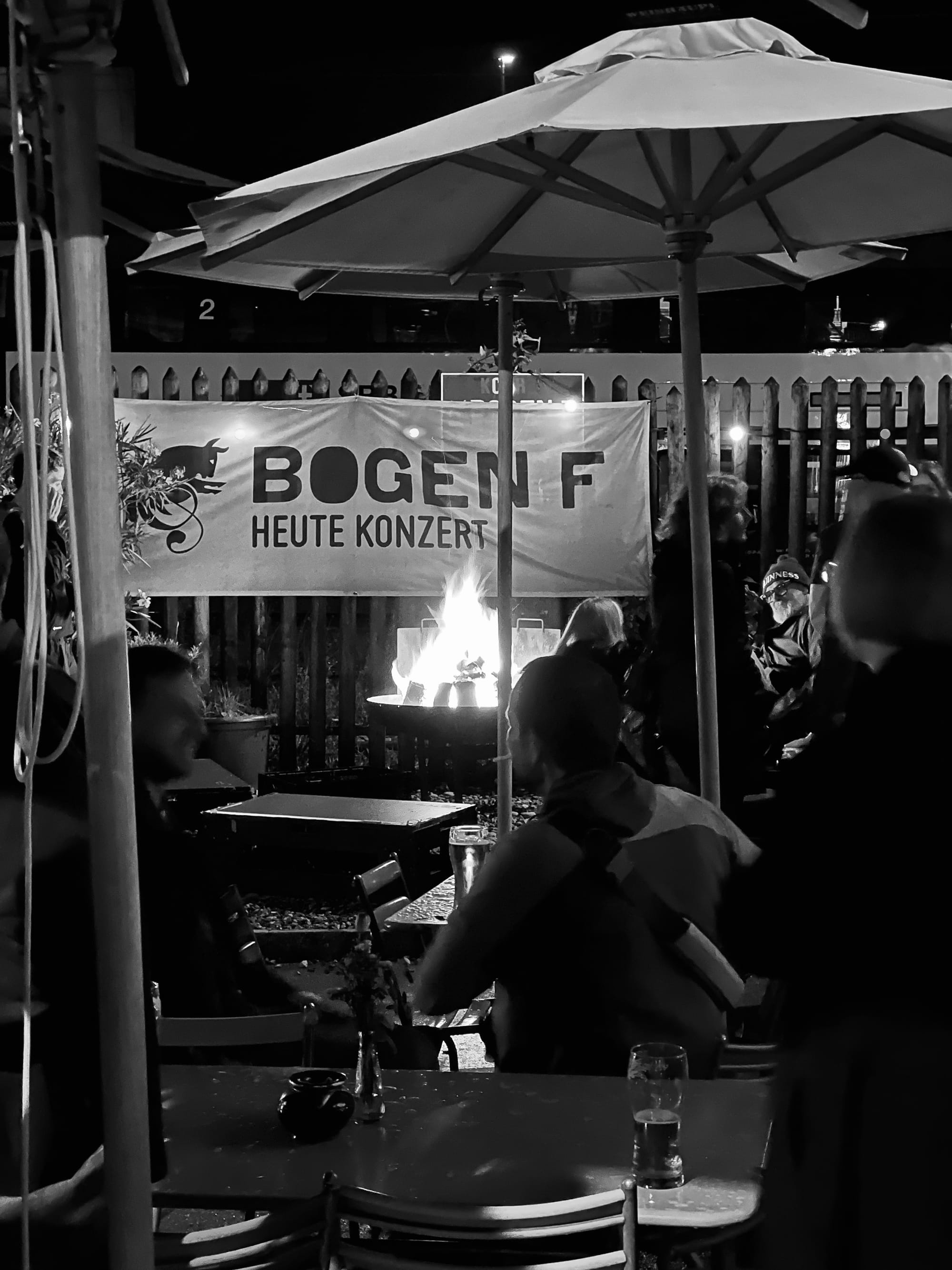Edition #132
This week, we recommend the new songs by MRCY, Bon Iver, Sampha, Mel D, and Porridge Radio.
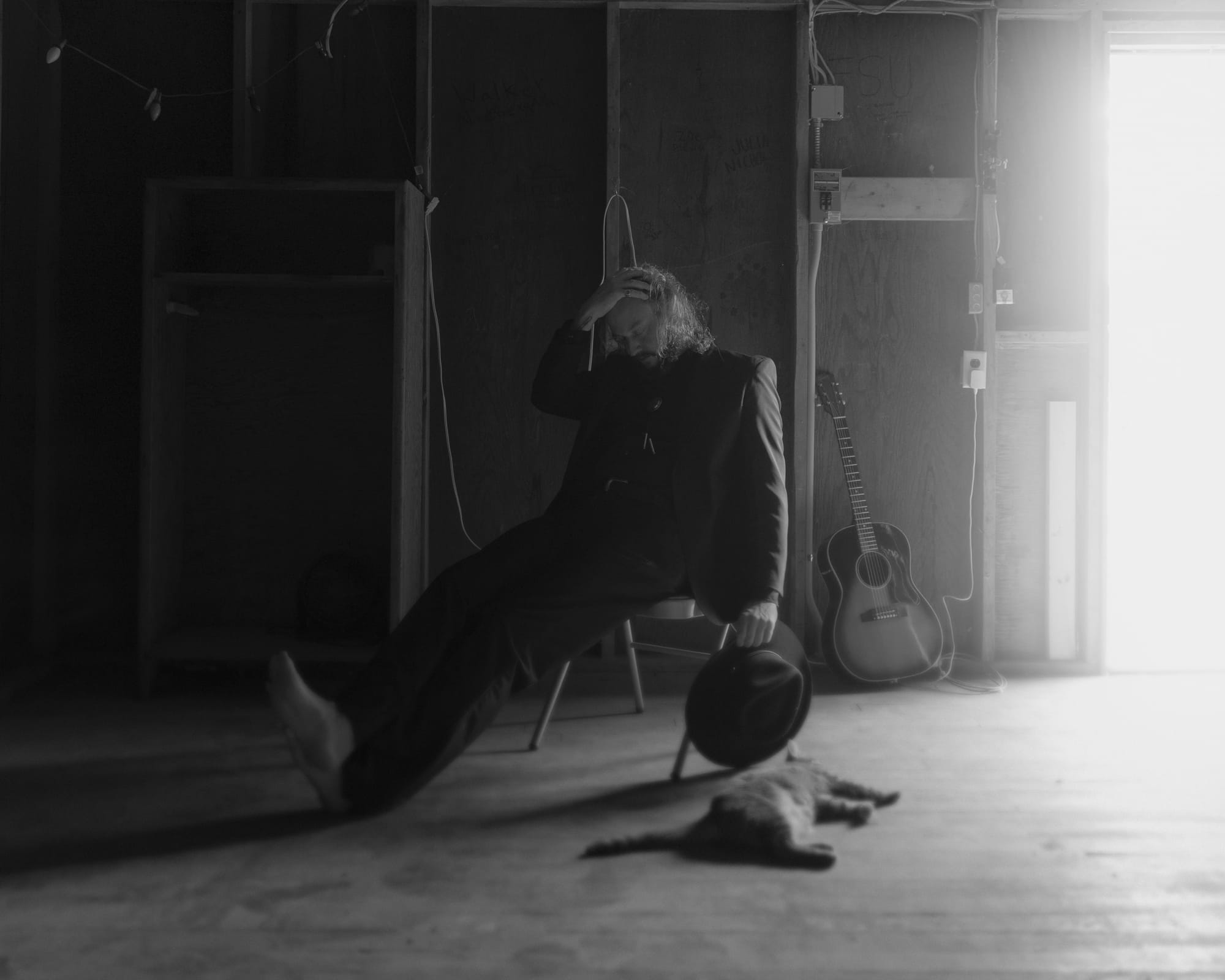
Swinging between warm, progressive, and soulful sounds, artistic self-doubt, liberation, and emotional anger. In today’s Weekly5, you find the soundtrack for a reflective, introspective autumn. (And every song is available to get on Bandcamp, which you should do if you like one of them. Here’s why.)
MRCY – Angels
MRCY is the child of the unlikely duo producer Barney Lister and vocalist Kojo Degraft-Johnson, a place of belonging and coming together. The captivating warmth of their contemporary soul radiates from Angels. What a stunning song!
Bon Iver – THINGS BEHIND THINGS BEHIND THINGS
Bon Iver released SABLE, a hauntingly beautiful little EP. Dealing with self-doubt about himself as an artist, THINGS BEHIND THINGS BEHIND THINGS is a touching piece of modern songwriter art, blending folk, country, and poetry.
Sampha – Dancing Circles 2.0
To celebrate the anniversary of the lauded album Lahai, London’s Sampha released a deluxe version with new tracks like Dancing Circles 2.0. Exquisitely mixing soul vibes with pop-esque rhythms and rap, the track is electrifying.
Mel D – Not Crazy
Taken from the same named EP, Mel D’s song Not Crazy is a frantic, fizzing piece of indie-pop made in Switzerland. Despite its general breathlessness, the Zurich-based artist cleverly carves out spaces for calmer, floating moments.
Porridge Radio – God Of Everything Else
Porridge Radio have a new album out, filled with eclectic alt-rock songs—God Of Everything Else being one of them. It is dark, dramatic, and slowly building to its ultimate, overwhelming crescendo. Loud and pissed off.
Ethereal Folk with an Avant-garde Twist
Jessie Monk premieres her new single, «Gold Flowers», with Negative White. It is a whimsical avant-garde folk tune—full of wonders and mystique.
What happens if one takes the tradition-heavy folk music, adds avant-garde and mystical flavours, and just runs with it? It might very well sound like Gold Flowers by Jessie Monk.
The song, releasing tomorrow, celebrates its premiere today with Negative White.—alongside a stunning video directed by Christy Chudosnik and choreographed by Lily Harding.
Although born in Canada, Jessie Monk grew up on the other side of the planet: in Australia‘s southeast, the land of the indigenous Gunaikurnai people. There, Monk discovered her passion for music and dance. In 2020, she then moved again and settled in Berlin.
Both, the very foundational, rural, even primordial, and the cosmopolitan, global, and progressive meet in Gold Flowers. However, there is no brutal collision, no stark contrast, but a symbiotic nurturing.
Death, Dream, and Trauma
Inspired by Gabriel García Márquez‘s 100 Years of Solitude, Monk tells the story of the Celtic goddess Mis, who‘s trying to bring back her dead father‘s soul but is ultimately overwhelmed by the terminal nature of death.
Evoked by the ethereal avant-garde folk composition, Gold Flowers creates a dream-like atmosphere, yet the lyrics infuse mighty metaphors that hint at the trauma of loss and grief.

Despite the song‘s heavy imagery, the lyrics remain cryptic and mysterious enough to facilitate a personal relationship uninterrupted by specificities.
And that is a testament to Monk‘s songwriting prowess; both in sound and story, Gold Flowers feels unquestionably human, grounded deeply in our emotions.
Sign up for Negative White
Driven by Sound, Guided by Passion. — A music newsletter for curious minds.
No spam. Unsubscribe anytime.
The Story Behind «Pool Song»
A song embodying Lea Porcelain’s strive for eternal sound and how it came to life.
All of a sudden, there is this unexpected drumbeat, soon merging with the bass into a rhythm and reverberating in the void. At the same time, the synthesiser emerges from the shadows, two alternating tones like a drawn-out siren. The sound swells, humming, a flood that sweeps you away and drowns you.
Pool Song is infinity cast in music. It is the crowning achievement of the German duo Lea Porcelain’s previous—if not already completed—work. In this piece, their search for eternity manifests itself and is perhaps the moment they come closest to this goal.
They were an unlikely pairing: Markus Nikolaus, an indie musician and singer-songwriter, and Julien Bracht, an up-and-coming techno producer. Two straying planets that unexpectedly found themselves in the same orbit.
In 2016, they released the first singles as Lea Porcelain, including Warsaw Street. There was this post-punk sound, the almost depressive mood of a Joy Division song, combined with the fading synthesiser pads.
Lea Porcelain created two albums: Hymns To The Night (2017) and Choirs to Heave* (2021). Both offered outstanding songs. In between, they released the EP Love Is Not An Empire, which featured I Am OK, a surprisingly light, ukulele-driven song that became their biggest hit.
After a crowning tour finale at the Funkhaus Berlin, the creative headquarters of Lea Porcelain, the band went silent. Markus Nikolaus pursues his label «Porzellan Bar» and various other projects, and Julien Bracht is working as EMPIRICAL towards his goal of performing at «Coachella».
For the time being, centrifugal force seems to have overcome gravity; the future of Lea Porcelain is written in the stars.
Exhaustion in Rio de Janeiro
Pool Song was created on the other side of the globe, far from Lea Porcelain’s home, in Rio de Janeiro. In a villa in the hills, owned by Uwe Fabich, the ex-banker and owner of Funkhaus. Their stay there was his way of saying thank you for their work in the artist community.
Edition #131
This week, we recommend the new songs by Mortòri, Veronica Fusaro, Mon Rovîa, The Veils, and Westfalia.
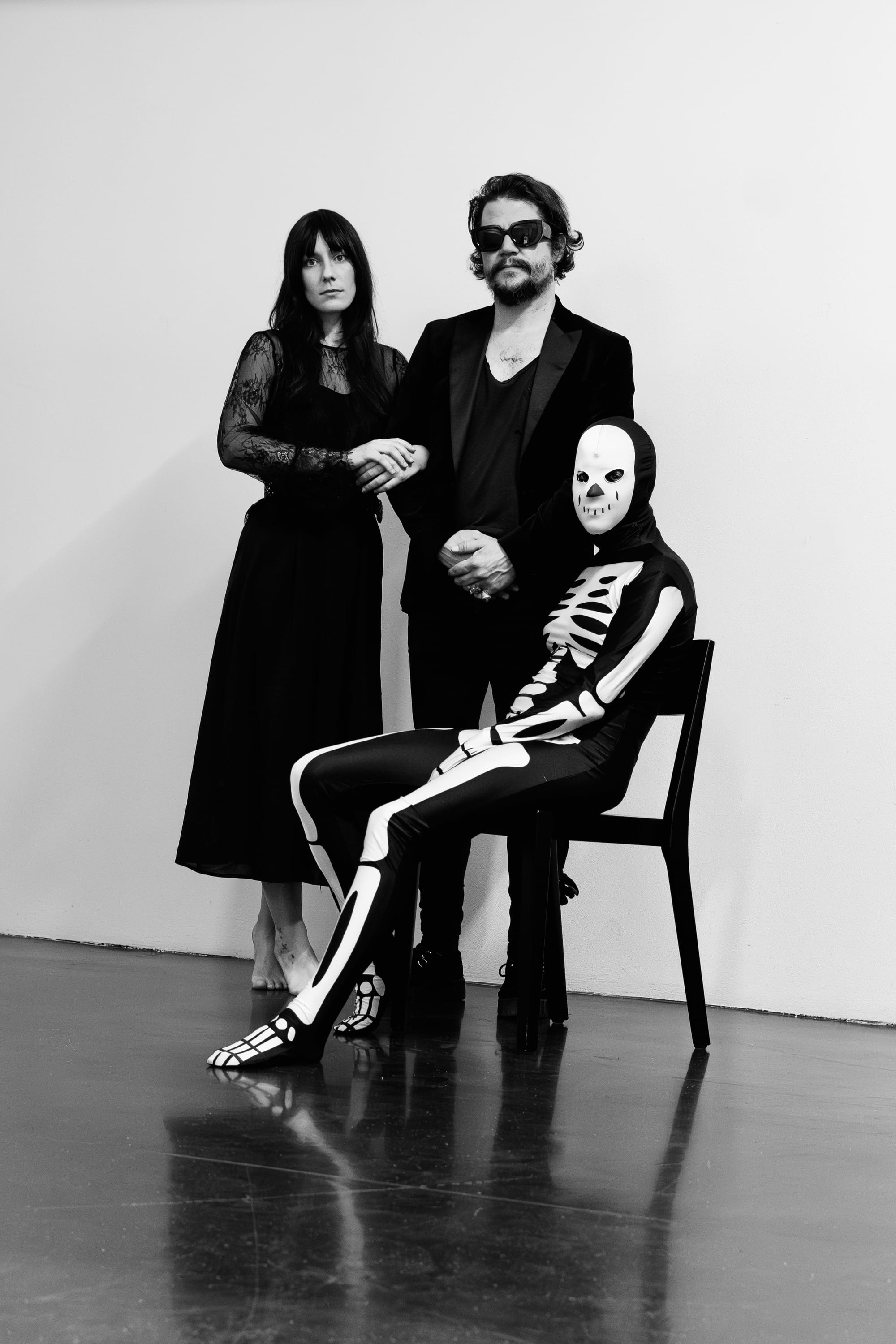
A dialect that is about to vanish. A debate on technology and cognitive dissonance. Highly orchestrated folk music and boundaries-breaking rock. Today’s Weekly5 take you on a rollercoaster ride—up to tender highs and down into gutwrenching valleys. Strap in!
Mortòri – Bordel
Peter Kernel’s Aris Bassetti debuts his solo project Mortòri. Crooning in the slowly extinguishing Ticino dialect, Bordel tells a tale of love and loss and a life in chaos. Minimalistic and laced with oriental influences, the track sounds almost punkish but indeed mysterious and dark.
Veronica Fusaro – Slot Machine
Veronica Fusaro is back with Slot Machine, and what an explosive sign of life it is! On the surface, the Swiss-Italian pop artist brings us an addictive, melodic anthem, but then, the lyrics dive into the contradictive nature of technology: endless possibilities and incessant distractions.
Mon Rovîa – Winter Wash 24
Born in Liberia, now living in Tennessee, folk artist Mon Rovîa brings traditional Appalachian folk and his African roots together. Tackling cognitive dissonance, Winter Wash 24 is a tender beauty countering apathy with impressive humanity and vulnerability.
The Veils – The Ladder
Finn Andrews’ The Veils have released The Ladder, a soft and artistically orchestrated piece of music. Deeply rooted in folk music, the strings and piano add to the cinematically grand atmosphere. The New Zealanders excel in this teaser for their upcoming seventh studio album.
Westfalia – D-End
Virtuously throbbing between industrial-esque distortion, trip-hoppy groove, and driven indie rock, Italian outfit Westfalia push the envelope with their latest single, D-End. It’s an explosive cocktail—loud, wild, and ever-escalating with an undeniable psychedelic attitude.
Edition #130
This week, we recommend the new songs by TALYA & Kurty Co, Cora Novoa, Subaqua, BENN, and Lisheva x Pastelfuneral.
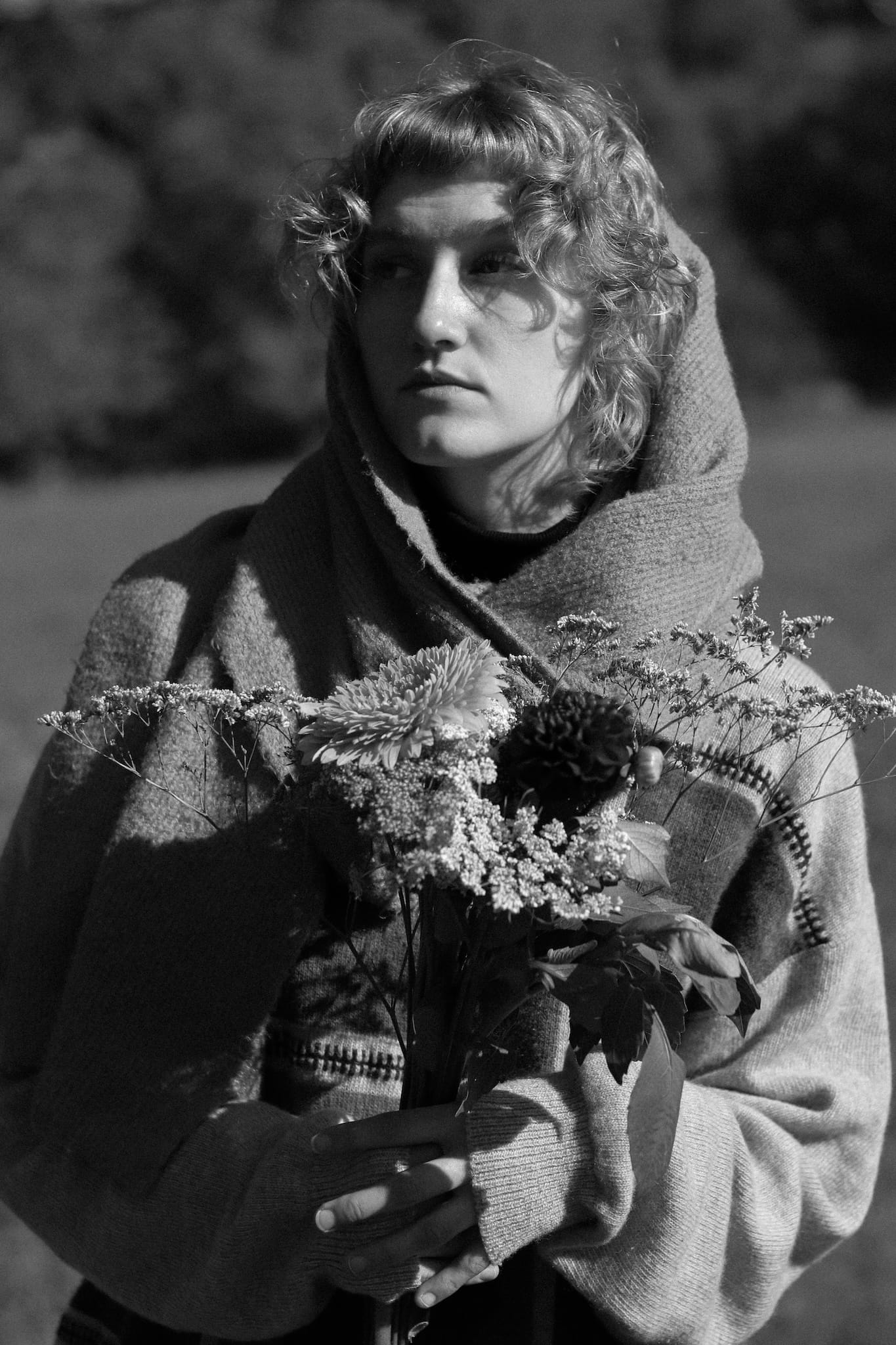
TALYA – useless (feat. Kurty Co)
What sounds ethereal in the beginning soon morphs into a subtly pumping track—maintaining its metaphysical energy. Useless by 24-year-old TALYA is an exceptional collaboration with producer Kurty Co, unifying the mystical of folk and the exuberance of electronica. Beautiful!
Cora Novoa – No Faith, No Fear
Barcelona-based DJ and producer Cora Novoa explores the complexity of humanity in the digital age in her upcoming album. No Faith, No Fear is a first preview, a glimpse into a post-modernity—built on fierce synthesizers, foggy vocals, and experimental will.
Subaqua – Naked
Subaqua's Naked displays their impactful songwriting capacity. The rising Swiss duo maintains a plain, sparse composition—it sounds raw, direct, and vulnerably honest. Walking the line between sharing and restraint, Naked is an impactful, heavy song that creeps under your skin.
BENN – In My Head
Finnish-Swedish alt-pop artist BENN revisits memories of insecurity and lack of self-esteem, meandering between uncertainty and hope. In My Head is a striving ballad driven by BENN's emotional, melodic voice. Yes, it's lingering closely to kitsch, but with a melancholic edge.
Lisheva & Pastelfuneral – Thelxiepeia
Thelxiepeia is one of the most renowned sirens in Greek mythology, but it is also the creative child of Lisheva and Pastelfuneral. And like a siren, the track is haunting, drawing you down into the escalating depths of hyper-pop-inspired electronic sounds. Unexpected and definitely only for some.
The Negative White Operating System
Take a peek behind the curtains and learn how Negative White operates, how ideas become stories, and why money is an important fuel.
The biggest threat to journalism is the decline in trust. I believe that transparency is crucial to stop this downward spiral, which helps anyone understand how the processes are set up and decisions are made.
That’s why transparency, in the form of integrity and independence, is a core value that informs how Negative White acts.
Today, we pull back the curtain on our operation and explore Negative White’s operating system, the individual cogs and bolts that make it functional, and the fuel that keeps the engine running.
The Fuel
You can build or buy the fanciest machine—without fuel, it‘s not doing anything. Negative White requires three types of fuel: ideas, time, and money.
Ideas are cheap and vast. They can come at any time, but their quality varies widely. Most ideas are not very good, but occasionally, they are brilliant.
Time, on the other hand, is the complete opposite of ideas: strictly limited and precious yet essential in moving ideas further along the process. Time is scarce because unpaid volunteers run Negative White. I have a full-time job that pays my bills.
 Negative WhiteJanosch Troehler
Negative WhiteJanosch Troehler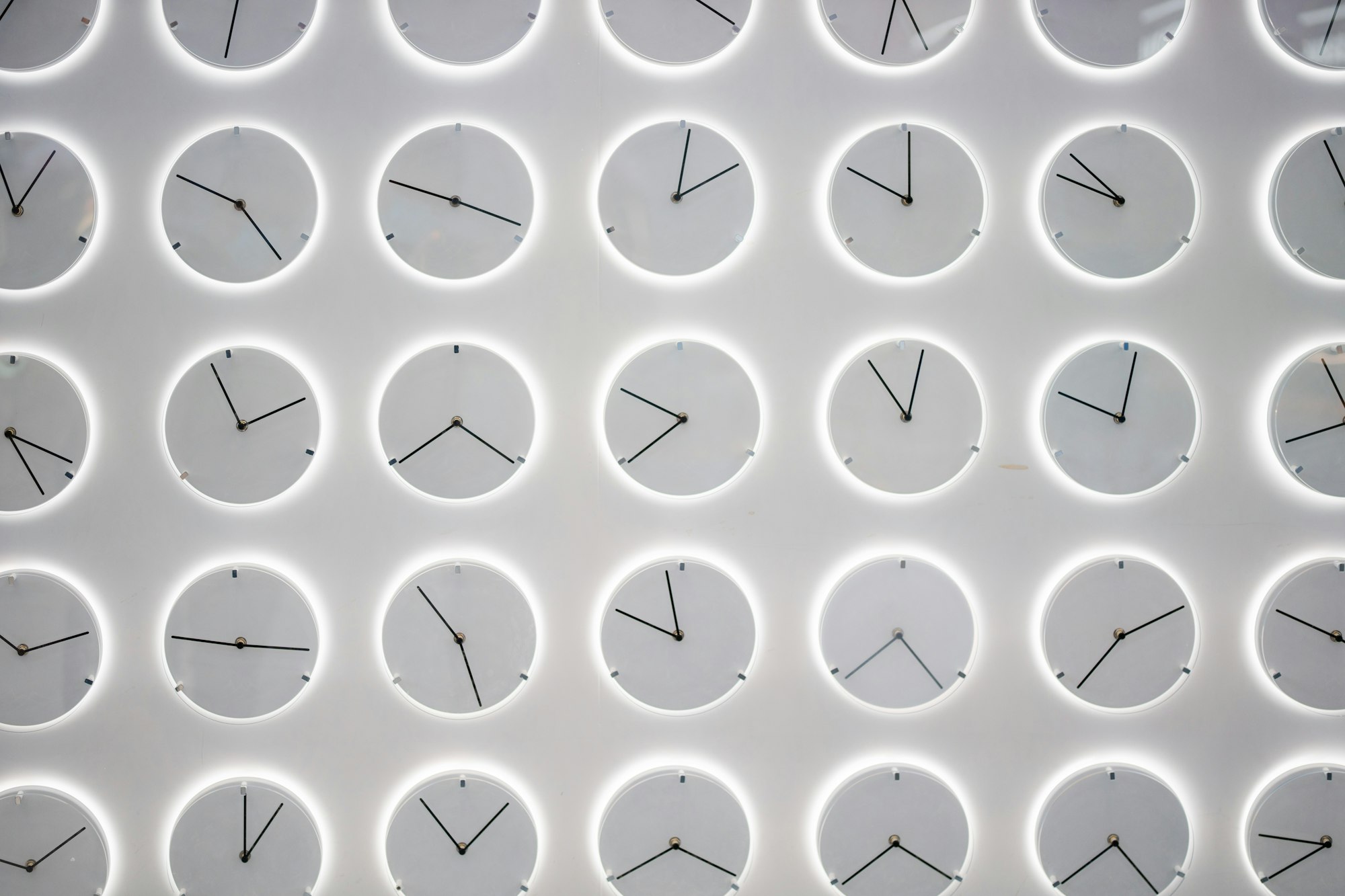
Last but not least, money is required to keep the engine well-oiled and functional. We mainly use tools and software that charge fees, especially when user data is involved. If tools are free, you pay with your data.
The Mechanism
Assuming all the necessary fuels are filled in the tank, we can turn on the machine and observe its mechanism.
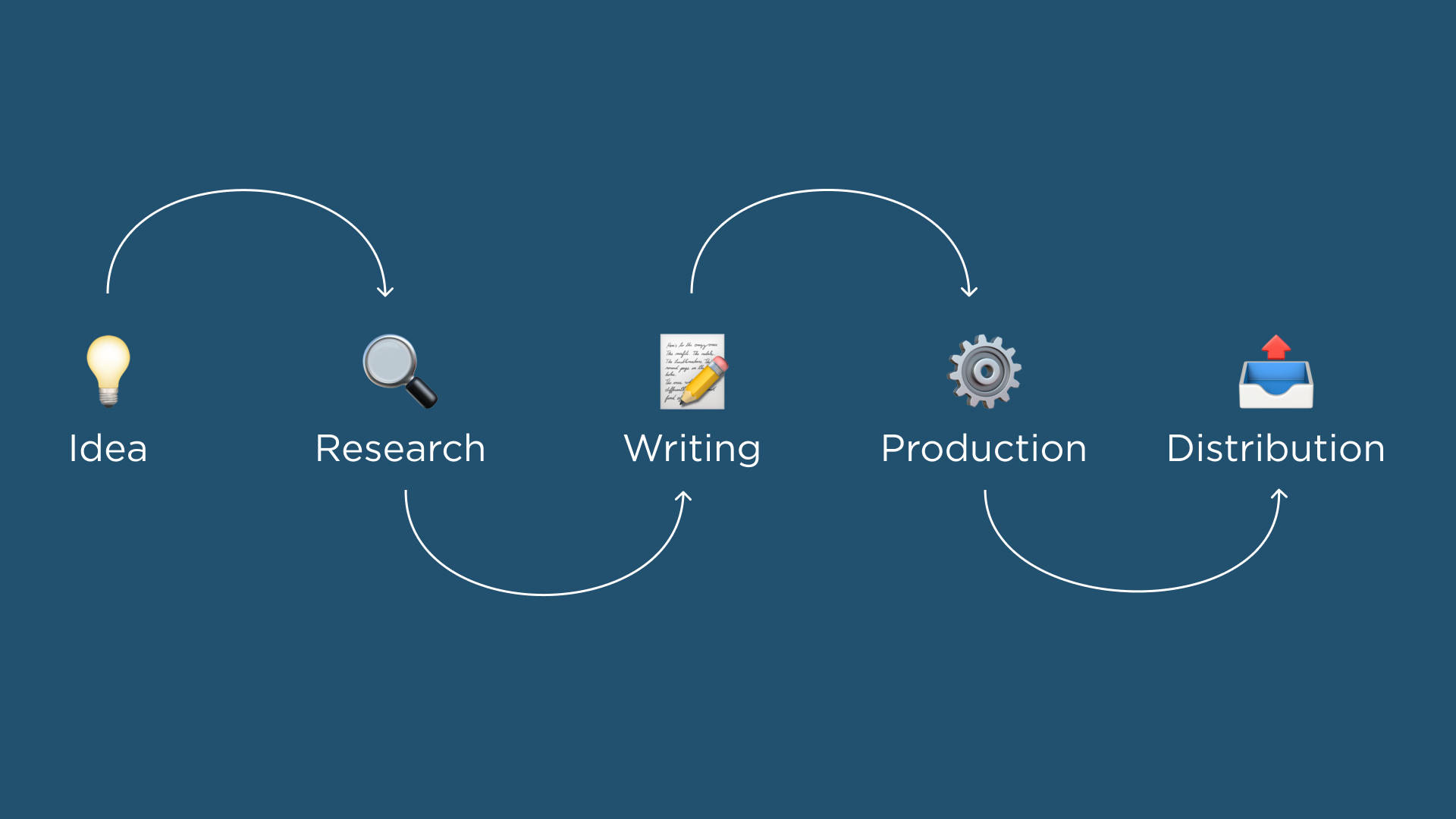
It starts with a raw idea, often just a tagline like «Interview with XYZ» or an observation like «struggling festivals».
Then, time is of the essence, required for research, talking to industry experts, writing, and producing until the post is ready to be published.
But the machine is not done yet. After hitting publish, more time is needed for distributing the story on different channels, primarily social media.
Naturally, this mechanism is a rather broad approximation of reality. Each idea requires a different input of time (or even money to rent a photo studio, for example).
And the mechanism is a bit different for formats like Weekly5. I‘ve previously described the process for our hand-picked song selection, and it‘s mostly still valid. The primary source for new music remains promotional emails from labels or artists, followed by research by ploughing through Bandcamp, playlists, and other blogs.
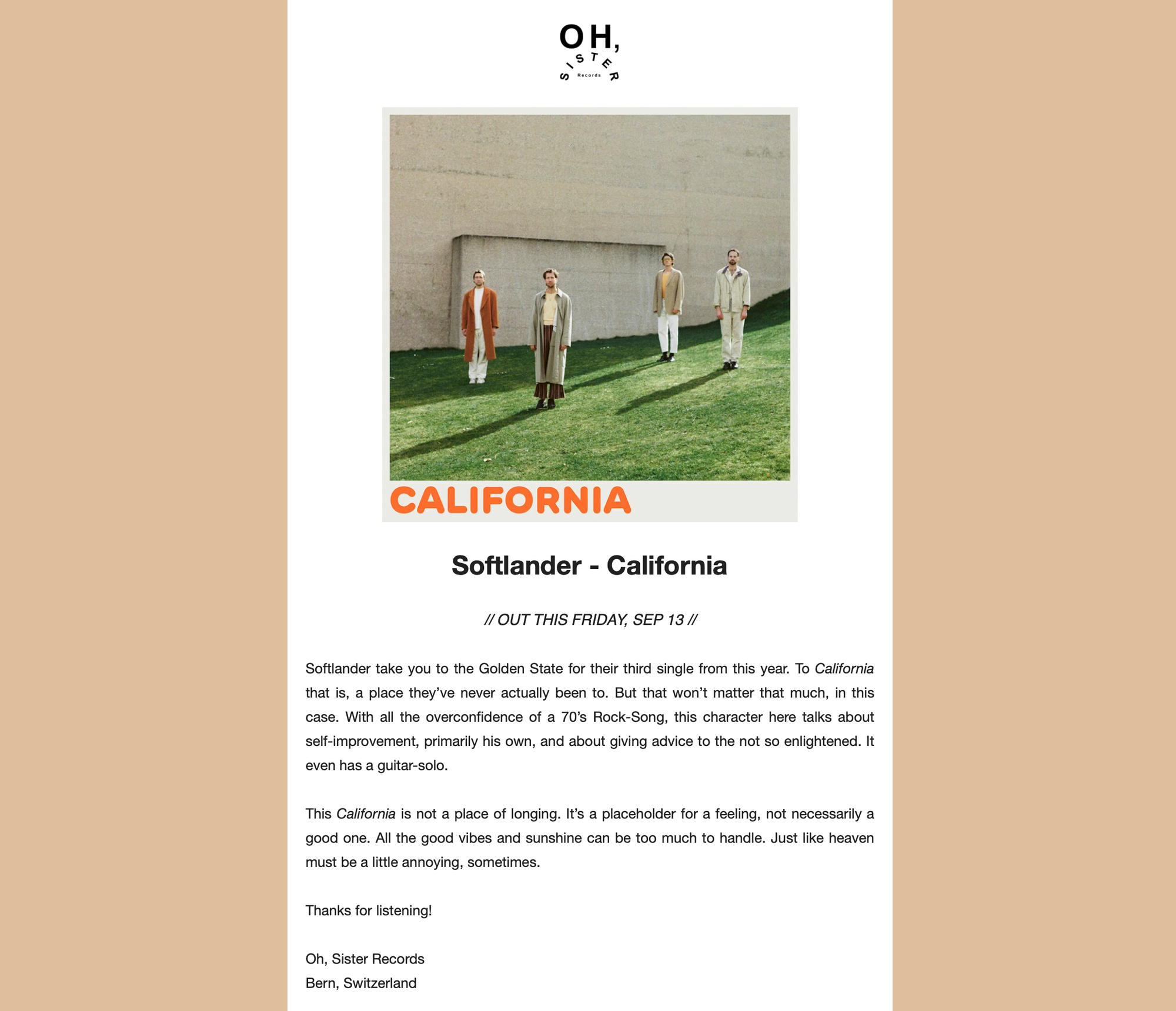
The Engine
Finally, it‘s time to examine the engine and its parts more closely. Money is required to keep the parts running, and I make these recurring costs public here.
Main Components
The central processing unit is Notion, a digital workspace offering a variety of features like creating documents, databases, wikis, and more. I write down ideas, document information, gather research findings, and maintain the publishing schedule. Notion ($120/year) is, in some capacity, involved in every step of the process.
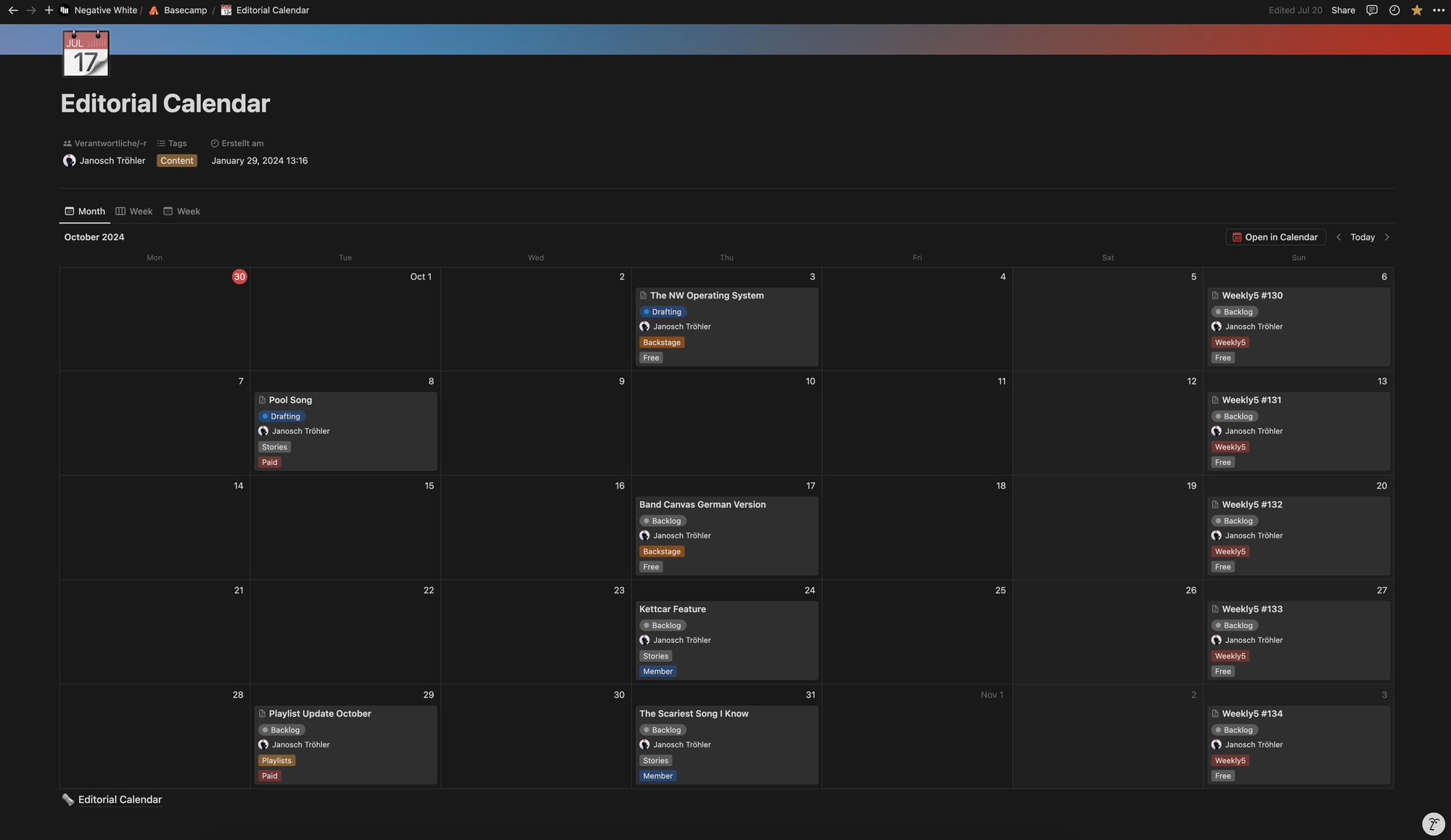
The writing, however, I do in a neat app called iA Writer, and no, it has nothing to do with AI. It‘s a distraction-free markdown editor that can actually be used with a one-time purchase.
Then, I deploy Grammarly ($144/year) for editing and proofreading. I mostly ignore their AI features and focus on the proofreading aspect since I‘m not a native English speaker.
After writing, the draft goes to Ghost ($300/year), our publishing platform. While Negative White depended for a long time on WordPress, Ghost focuses on newsletter sending as much as being a neat content management system provided by a non-profit organisation.
Ghost has two additional components necessary to make the whole operation work: Stripe to power our paid subscriptions and Outpost ($96/year) to manage our welcome email flows.
Supporting Components
Besides the main components, the Negative White engine has supporting parts—not as critical but still providing value.
- Soundiiz: Automatic synchronisation of playlists across streaming services. ($48/year)
- Hey: Email tool ($120/year)
- Figma: Creation of social media visuals, mainly for Instagram. (free plan)
- Plausible: GDPR-compliant analytics hosted in the EU. ($97/year)
- Refind: Discovery of relevant and exciting stories.
- Gumroad: Infrastructure for our developing shop. (free)
- Discord: Server for our developing community space. (Join here)
And not to forget: a reliable pen and a notebook for taking notes at concerts.
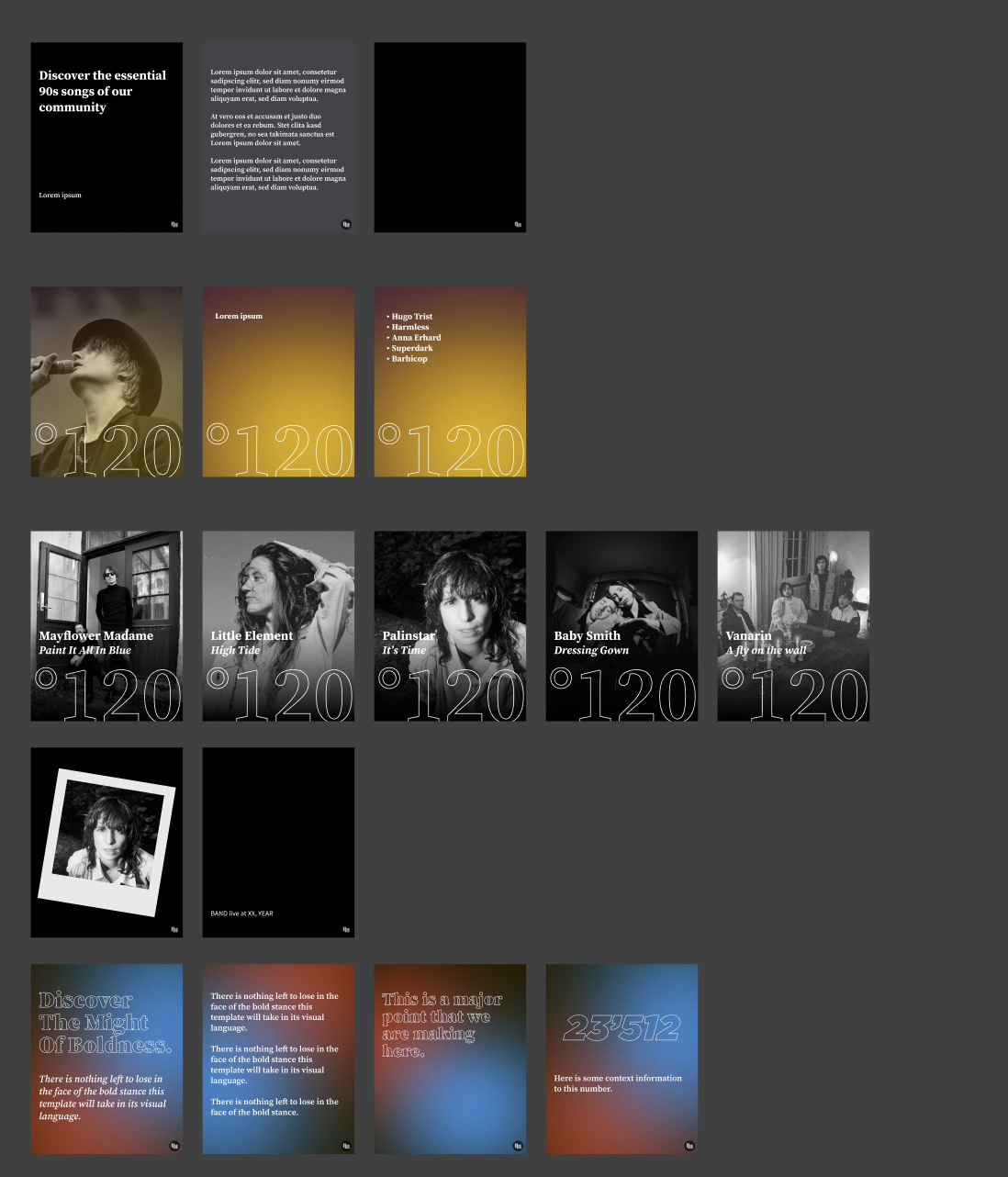
How does Negative White make money?
Now, it’s worth revisiting the fuels for a second. While story ideas are a question of creativity and time a question of keeping a tight personal schedule, money is the tricky fuel to get.
Negative White primarily earns money via paid subscriptions. The current so-called monthly recurring revenue is $87 or $1044 per year, meaning the subscriptions cover our yearly software fees of $925.
However, there are more operational costs, namely domains and a server. These costs amount to an additional $300 per year. So, a quick calculation reveals that Negative White is just shy of break-even.
If you want to be Negative White’s deciding contributor and help it break even, get your paid subscription here or just donate whatever you can. If you are already a paid subscriber, thank you from the bottom of my heart!

However, relying solely on subscriptions can also be risky. That’s why we are currently looking into diversification: offering products and services in our shop or working with affiliate links.
A Hypothesis to end
I hope this behind-the-scenes report provided some transparency and insight into the Negative White operation system.
I‘d like to round off this post with a little hypothesis because you may wonder now what happens if we actually generate more money than we need.
Negative White will be self-sustaining with around 30 paid subscriptions. I‘m hopeful we can reach this goal in 2024.
Every additional revenue is used to build reserves that may be needed at some point. However, there‘s a threshold where money becomes time, where I could pay contributors or reduce my workload and dedicate a full day‘s focus only to the platform. And this threshold is at 360 paid subscriptions—that‘s still quite a stretch.
Edition #129
Today, we recommend the new songs by Flirtmachine, Mount Jacinto, Billy Zach, Meltheads, and Hugo Trist.
Do you like wonky tunes? Or are refined rock compositions your preference? Don't worry; the latest, hand-picked collection brings you both. I wish you a joyful discovery.
You can listen to today's curation on selected streaming services:
Spotify • Apple Music • YouTube Music • Bandcamp
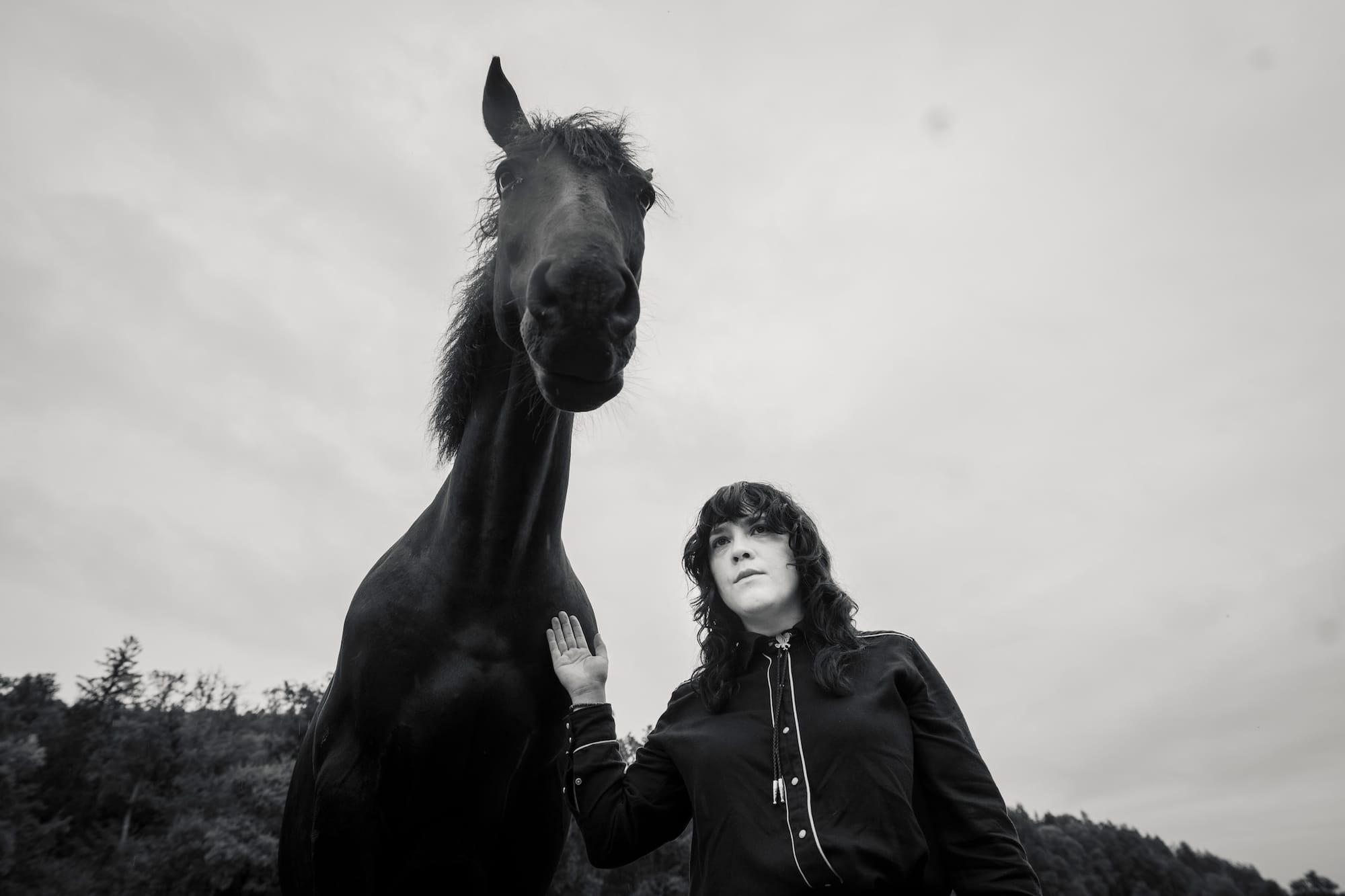
Flirtmachine – Been in the Train
A fun kind of wonkiness surrounds Been in a Train by Austrian band Flirtmachine. Indie rock, funk, rap and synthpop join together in this compartment—on a ride to the underground station. The result sounds impossibly cool.
Mount Jacinto – The Reason
With undeniable 60s nostalgia, Mount Jacinto explores the inner dialogue in crucial moments. The Reason is a powerful yet reserved rock track that shines with a pale light and rides with a groovy bass. And the guitars—sometimes flowing, sometimes emphatic—round off this reflective tune.
Billy Zach – I am You
Fans of Fontanes D.C. have to taste Billy Zach and their new single, I am You. The dragging, noisy post-punk composition slowly cuts open the chest, carefully severs the heart from the bloodlines, and throws it into the abyss. A haunting, trance-inducing sound.
Meltheads – Happiness Suits You
Uncompromisingly fast and loud, Belgian indie rock formation Meltheads shred through the curtain. Happiness Suits You, a hearty anthem for self-acceptance, attacks the legs with pop's catchiness and the gut with punchy riffs. It is a sweaty and wild affair.
Hugo Trist – De-Identify
Eclectic future garage artist Hugo Trist presents his debut album. As already proven with every single release like Say It, Mean It, his compositions are as catchy as they are soulful. De-Identify stands as another perfect, more dreamy example.
We asked Hugo Trist to share five tracks that inspired his sound. Find out here.
Baptism of Fire for the «Songs of Homecoming»
The Beauty of Gemina started the tour in Zurich and performed every song on their new album «Songs of Homecoming». How did they hold up?
It’s a dreary Thursday evening. Rain has been pouring down all day, yet it seems fitting for the occasion. «It rains a lot in Gemina-land,» Stephen Kennedy wrote in 2014. The rain remains a recurring image in The Beauty of Gemina’s songs—most prominent in Dark Rain or the new track Vail of Rain.
I’m on my way to their concert, trying to count the times I’ve seen this band on stage, but I fail. It should be close to 20 times by now. A ridiculous number. From a writer’s perspective, there’s no justifiable reason to see a band so many times live. But, to be fair, the bulk of those shows lay far in the past.
In all those years, however, I never experienced a bad show. Yes, there were problem-riddled ones, mediocre ones. But never a terrible one. Maybe I got lucky?
I’ll tempt my luck again this night for two particular reasons:
- They play the songs from their new album, Songs of Homecoming. How will they hold up?
- As Michael Sele proclaimed in our interview, the current line-up is the best band in their history. Can they live up to the praise?
The only caveat worth mentioning here: It’s the first show of the tour. An evening that puts The Beauty of Gemina truly to the test on multiple fronts.
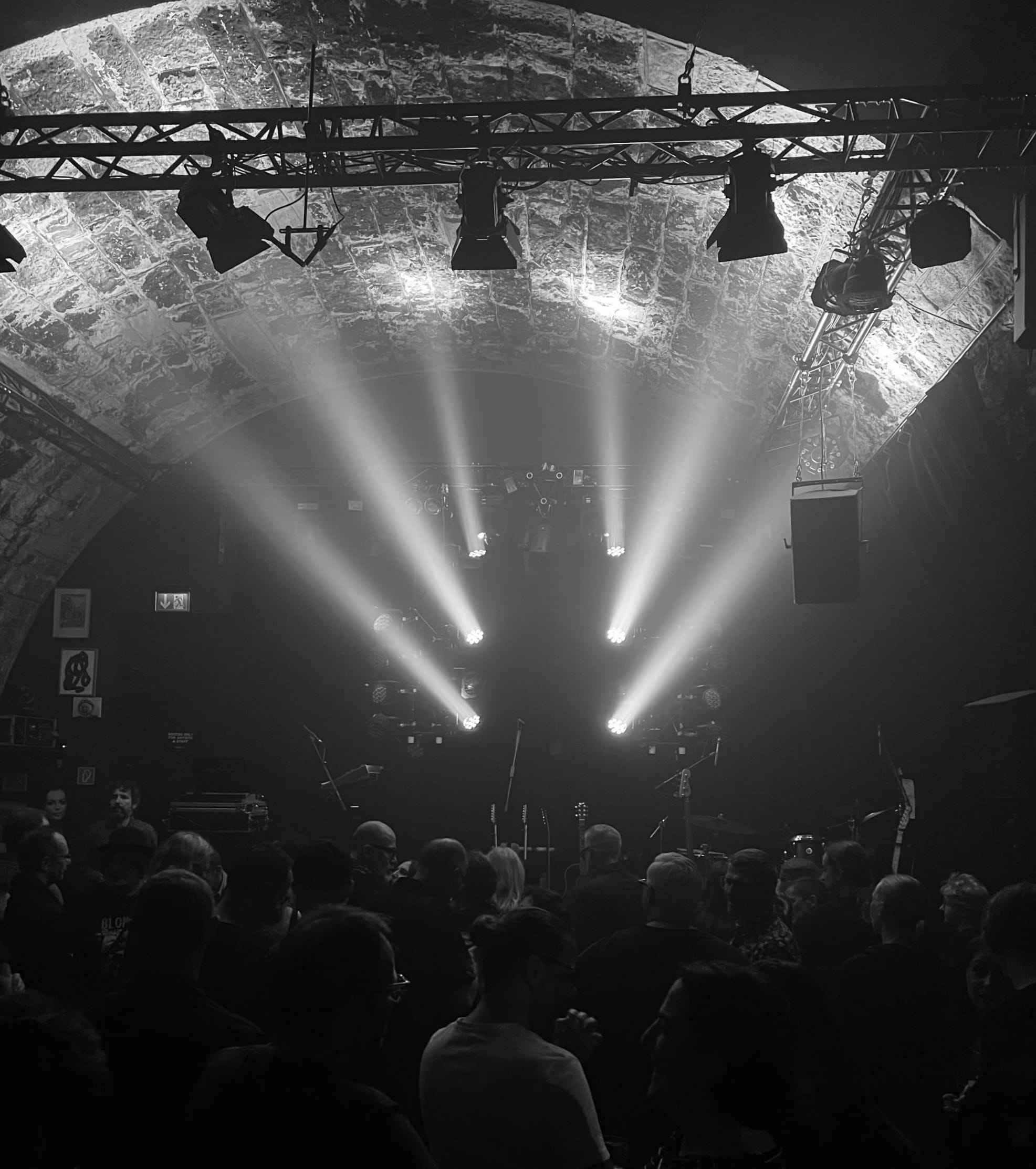
With the jacket zipped up to the very top and the hat drawn deep into my face, I walk through the nightly rain towards the venue, «Bogen F». This small concert room is nestled in one of the arches of a train viaduct has a special ambience. There’s a notion of a basement club within these mighty brick walls. But also a lofty feel thanks to its height.
People rush by on the shimmering asphalt, desperate to get to their warm, dry homes. This weather is a concert killer. Venues and concert promoters struggle. Usually, pre-sales are horrible, the rising number of no-shows puts a dent in bar revenue, and people generally decide spontaneously whether to attend a show or not.
 Negative WhiteJanosch Troehler
Negative WhiteJanosch Troehler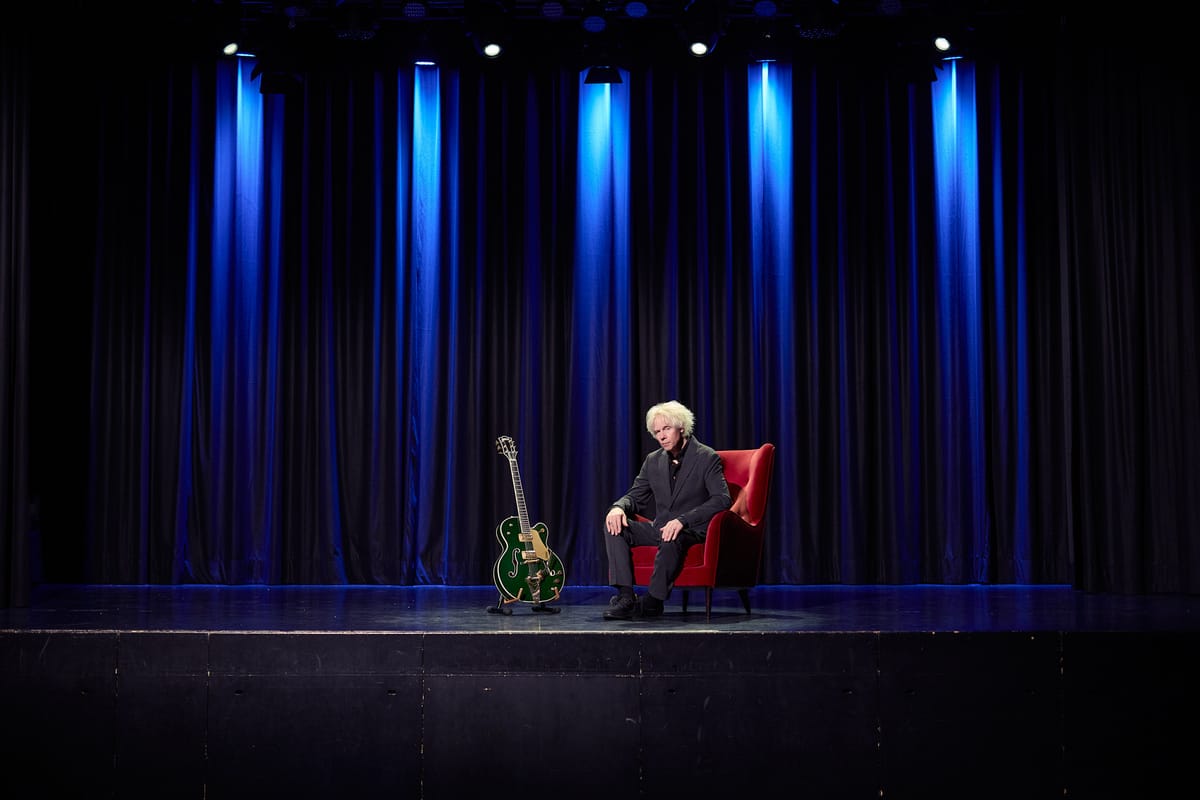
But The Beauty of Gemina have been around for 17 years now. Although they never fully broke through into the mainstream, they have cultivated a dedicated fan base over the span of ten studio albums and hundreds of concerts. It’s one of the bands that will remain sort of a secret tip, recommended by the initiated, and successful in its own regard.
The concert wasn’t sold out, but despite the weather, the room was packed. The audience aged with the band; only a few visibly young individuals were in the crowd. And, noticeably, ambassadors of the wave and gothic scene, where the band originated, were definitely in the minority.
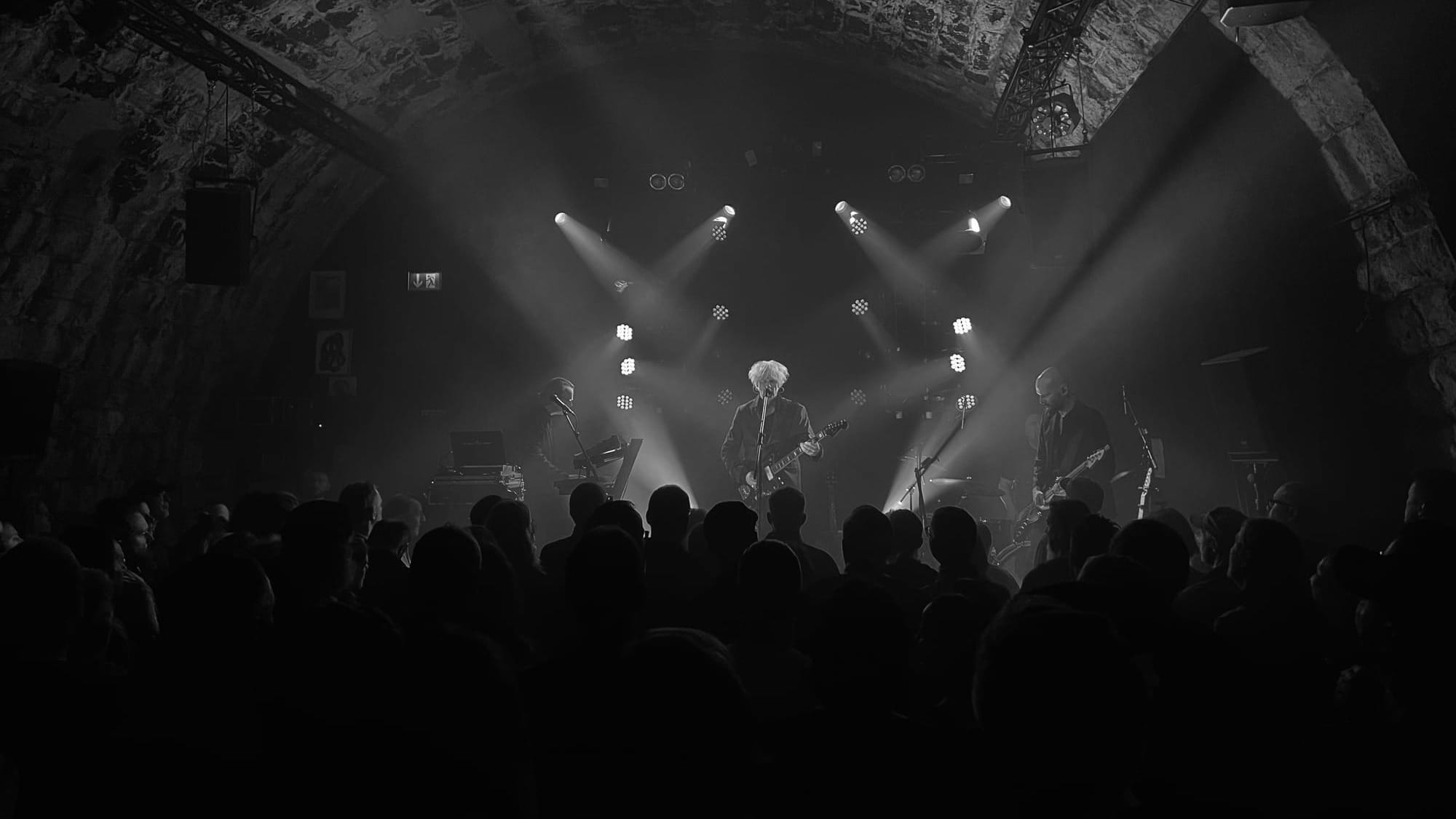
Shattering bass drones introduced Dreams of the Vagabonds, and the show began. But not without some technical problems. Electrical feedback from the guitar, paired with concerned glances by the musicians.
The second song, Whispers of the Seasons, didn’t inspire confidence either. Frailing, as if the band was disconnected, it also felt awfully noisy, and the contrast between the vulnerable verses and the hopeful chorus drowned.
But then, the band found its stride. With End and Crossroads, they celebrated the 2016 album Minor Sun, played vigorously and with confidence. Followed by Veil of Rain, where they lowered the full weight of this slow and heavy dark wave track with clarity and precision on the collective souls.
Everything the audience could hear that evening was played live, thanks to keyboarder Daniel Manhart, the most recent addition to the line-up, and Mac Vinzens hitting a hybrid drum. Combined with the musical development, The Beauty of Gemina can play liberated as never before.
Most apparent became this freedom with One Step to Heaven, a song from their debut album which received a rework last year. The song became lighter and gained space, which the band used to deliver an extraordinarily excellent performance which only enforced its psychedelic, trance-provoking nature.
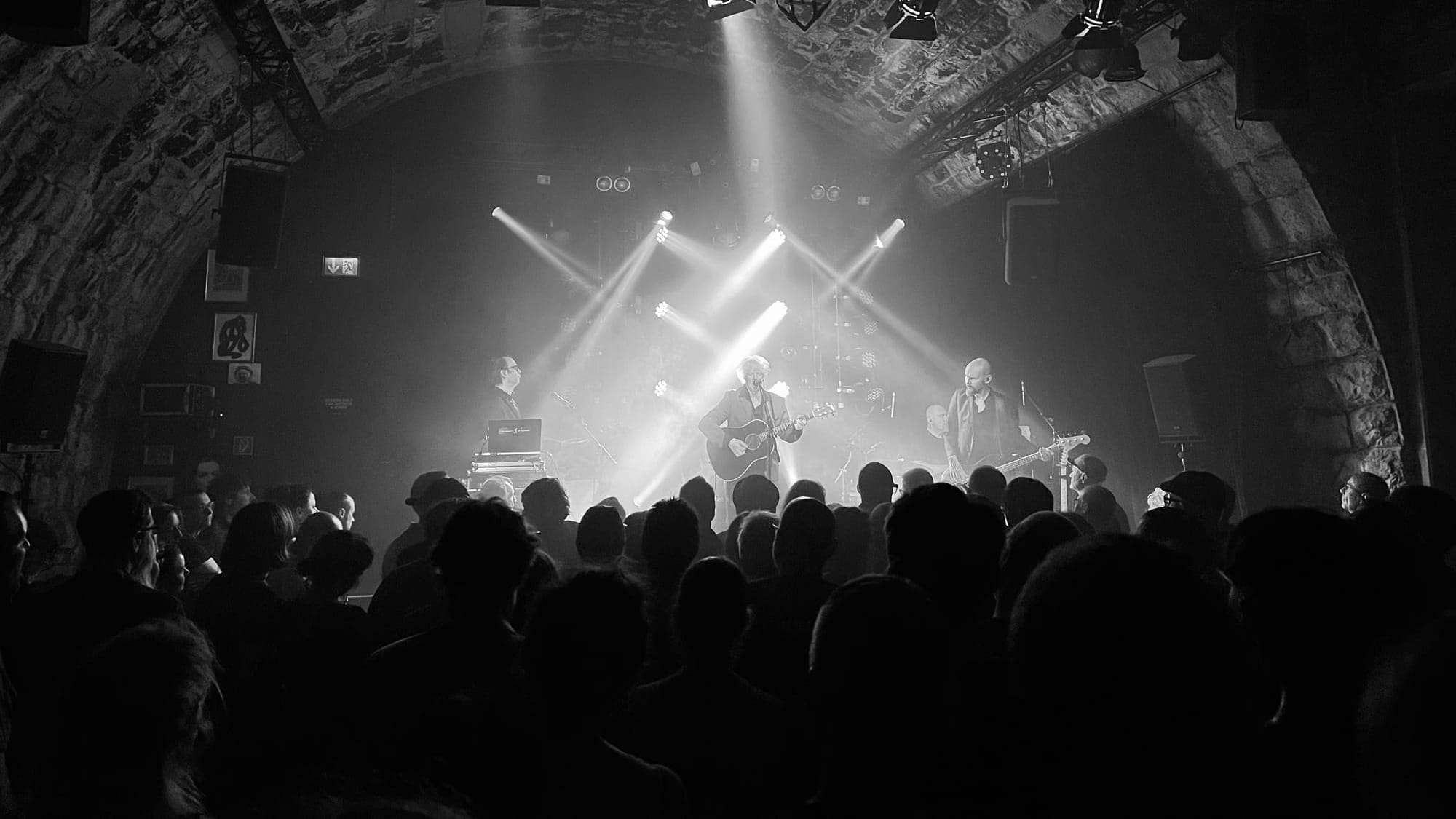
The Beauty of Gemina made bold choices for the tour. Not only did they waive to add the band’s hit, Suicide Landscape, to the setlist, but they played every single song from the new album live. Interlaced with reliable classics from their repertoire like Rumours or the haunting River, the new songs—with the exception of Whispers of the Seasons—worked perfectly on stage.
Now, it’s worth taking a breath and thinking about the significance of this feat. No other album in the band’s oeuvre has this all-around live quality. And few bands will ever release an album that works on stage as well as it does on the record.
Regardless of the technical challenges and the few occasions Sele struggled with his lyrics on King’s Men Come and Endless Time to See, the band’s performance was professional throughout and, at times, extraordinary.
It’s not a wild and exuberant rock show. Instead of gimmicky visuals and an extrovert attitude, you’ll find restraint, nuance and sophistication with small outbursts of sparks and brilliance. Especially when they pull into a longer instrumental part.
 Negative WhiteJanosch Troehler
Negative WhiteJanosch Troehler
So, back to my questions. Did the Songs of Homecoming pass the test of live performance? Definitely, almost to incredible perfection.
And is it the best live band ever to call themselves The Beauty of Gemina? Well, that’s hard to say from one single show. It certainly wasn’t their best-ever gig; they had a bumpy start—coupled with the nervousness incumbent of a tour start. And yet, throughout the 90 minutes, they only gained confidence and energy. That’s a promise.
«It was awesome,» a woman tells her friend. The rain stopped, and the ship came in. A fire crackles in the metal pit outside, drowning everything in its proximity into a golden glow. The baptism of fire for The Beauty of Gemina and Songs of Homecoming is accomplished.
